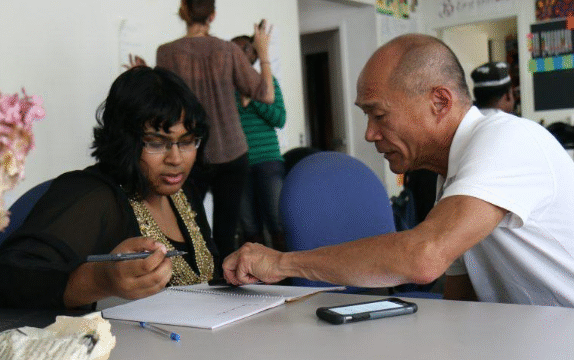In every corner of the world, teachers serve as the guiding
light that shapes young minds and inspires future generations.
Among them, rural teachers hold a unique and powerful role.
They are more than just educators; they are community leaders, role models, and often the bridge between children and opportunities beyond their immediate surroundings. In regions where access to education can be limited by geography, poverty, or infrastructure challenges, rural teachers stand as champions of education for all.
Rural teachers often face circumstances that make their jobs more demanding than those of their counterparts in urban areas. Classrooms may be under-resourced, textbooks may be outdated, and access to technology may be limited. Yet, despite these obstacles, they continue to inspire and teach with creativity, resilience, and deep dedication. Their commitment ensures that children in remote villages and far-off towns are not left behind in the pursuit of knowledge.
One of the defining characteristics of rural teachers is their ability to adapt. With fewer resources, they learn to innovate. A chalkboard may become the centerpiece of learning, and a single book may be shared among many students. Hands-on learning activities are often improvised from local materials, making lessons practical and relevant to students’ everyday lives. For example, a teacher in an agricultural community may use farming tools to explain mathematical concepts or relate science lessons to the local environment. By connecting classroom knowledge to the real world, rural teachers help students see the value of learning in their daily lives.
Rural teachers also play a vital role in community building. In many small towns and villages, the school is the heart of the community, and teachers are looked upon with respect and trust. They are not only responsible for academic growth but also for nurturing values such as responsibility, kindness, and cooperation. Many rural teachers organize community events, mentor young people outside school hours, and sometimes even provide counseling and support to families. Their influence extends far beyond the classroom walls, shaping both the minds and hearts of the communities they serve.
The personal sacrifices of rural teachers often go unnoticed. Many of them leave behind more comfortable lives in urban centers to live in remote areas where electricity, clean water, and transportation are not always guaranteed. Some walk long distances to reach their schools each day, while others teach in classrooms that lack basic facilities such as proper desks or reliable roofs. Despite these challenges, they remain motivated by their love for teaching and their belief in the power of education to transform lives. Their perseverance is a true reflection of their dedication to ensuring that no child is left without the opportunity to learn.
Another remarkable aspect of rural teachers is their role in fostering inclusion. In many rural areas, classrooms bring together children of different ages, backgrounds, and abilities. A single teacher might teach multiple grade levels at once, carefully balancing the needs of each student. This requires patience, creativity, and skill. By nurturing a spirit of inclusion, rural teachers make sure that even students who may need extra attention or who come from disadvantaged backgrounds are supported in their learning journeys.
Rural teachers also inspire hope for the future. Many children in rural areas may not have role models who have pursued higher education or careers beyond farming, fishing, or local trades. Teachers become living proof that education can open doors. When a child sees their teacher guiding them through lessons with enthusiasm and confidence, they begin to imagine possibilities for themselves that go beyond what they see at home. This spark of hope can change the course of a young person’s life, leading them to dream bigger and aim higher.
In recent years, there has been growing recognition of the need to support rural teachers. Governments, organizations, and communities are beginning to invest in training, resources, and incentives to ensure that teachers in remote areas can thrive. Access to digital tools, professional development programs, and improved infrastructure can make a significant difference in helping rural teachers do their jobs effectively. By valuing and supporting them, societies can ensure that the mission of education for all truly reaches every child, no matter where they live.
Despite these efforts, much more can be done. It is important to listen to the voices of rural teachers themselves. They understand better than anyone the realities of their classrooms and the needs of their students. By involving them in decision-making processes and policy development, we can create solutions that are both practical and effective. Respecting their insights ensures that the future of rural education is shaped by those who know it best.
Communities also have an important role in supporting rural teachers. When parents, local leaders, and organizations come together to value and encourage education, children benefit greatly. A supportive environment helps teachers stay motivated and students stay engaged. Celebrating the achievements of rural teachers and acknowledging their contributions helps to strengthen the bond between educators and the communities they serve.
At the heart of it all, rural teachers remind us of the true purpose of education. It is not only about grades, exams, or certificates but about nurturing potential, fostering growth, and opening doors to opportunity. Education is a pathway to empowerment, and rural teachers are the guardians of that path for millions of children around the world.
Their stories deserve to be told and celebrated. Every lesson taught under a tree, every improvised science experiment, and every encouraging word spoken in a small classroom contributes to the larger mission of creating a more educated and equitable world. Rural teachers may not always have the spotlight, but their impact is profound and lasting.
As we reflect on the importance of education for all, let us remember the champions who make it possible in the most remote corners of the world. Rural teachers are not only shaping the future of individual students but also lifting entire communities toward progress. Their dedication, creativity, and resilience are a reminder that true change often begins in the simplest classrooms, guided by the steady hands of teachers who believe in their students.
In honoring rural teachers, we honor the very spirit of education itself. They show us that teaching is not just a profession but a calling, one that carries the power to transform lives. By supporting and celebrating rural teachers, we take a step closer to achieving a world where education is not a privilege but a right that truly belongs to everyone.






